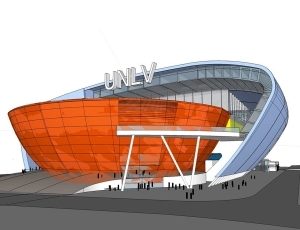
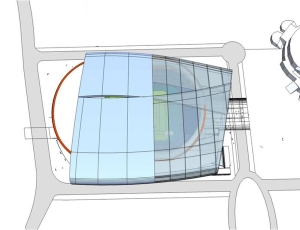
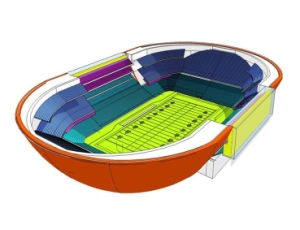
The University of Nevada-Las Vegas� aging, bland campus could soon get a shot of high-octane excitement. Billionaire developer Ed Roski recently unveiled plans to build a new domed football stadium at the school�s 332-acre main campus at 4505 S. Maryland Parkway in central Las Vegas.
The 40,000-seat steel-and-glass venue would serve as home to the UNLV Rebels football team, which currently plays at the outdated 40-year-old Sam Boyd Stadium located 7 mi off campus.
The new stadium is the showpiece of a proposed 150-acre mixed-use, master-planned village consisting of 3,000 housing units and 600,000 sq ft of retail space, with parking for 15,000 vehicles. The scheme entails refurbishing the 28-year-old, 18,776-seat Thomas & Mack Center, as well as acquiring a parcel at the northeast corner of Paradise Road and Tropicana Boulevard, closing Swenson Street and creating a new south campus entryway.
Roski is co-owner of the NBA Los Angeles Lakers and NHL Kings; he is also developer of the Staples Center in downtown Los Angeles and owner of Majestic Realty Co., which has built 6.7-million sq ft of commercial projects in Southern Nevada since 1989. Roski additionally operates the 300-room Silverton Casino Lodge, on 80 acres, in southwest Las Vegas.
Commerce Construction, a Majestic affiliate, would serve as the development�s general contractor with Design Development Group and Populous as project architects. A budget and timeline have yet to be established.
Roski is exploring funding options, including the possibility of using an enterprise district that would direct incremental tax increases toward project-related bond financing. Debt would be retired through a combination of fees and advertising, sponsorships and sales, as well as operating income. Creation of an enterprise district would first need legislative approval.
Roski hopes to gain an exclusive development agreement with the university. The plan will be presented to the Nevada University Board of Regents on February 11.

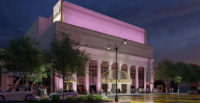

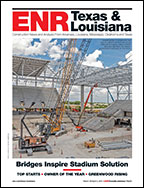
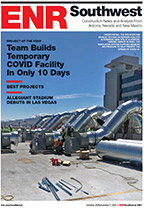
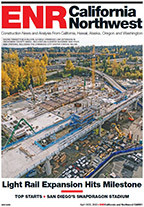
Post a comment to this article
Report Abusive Comment